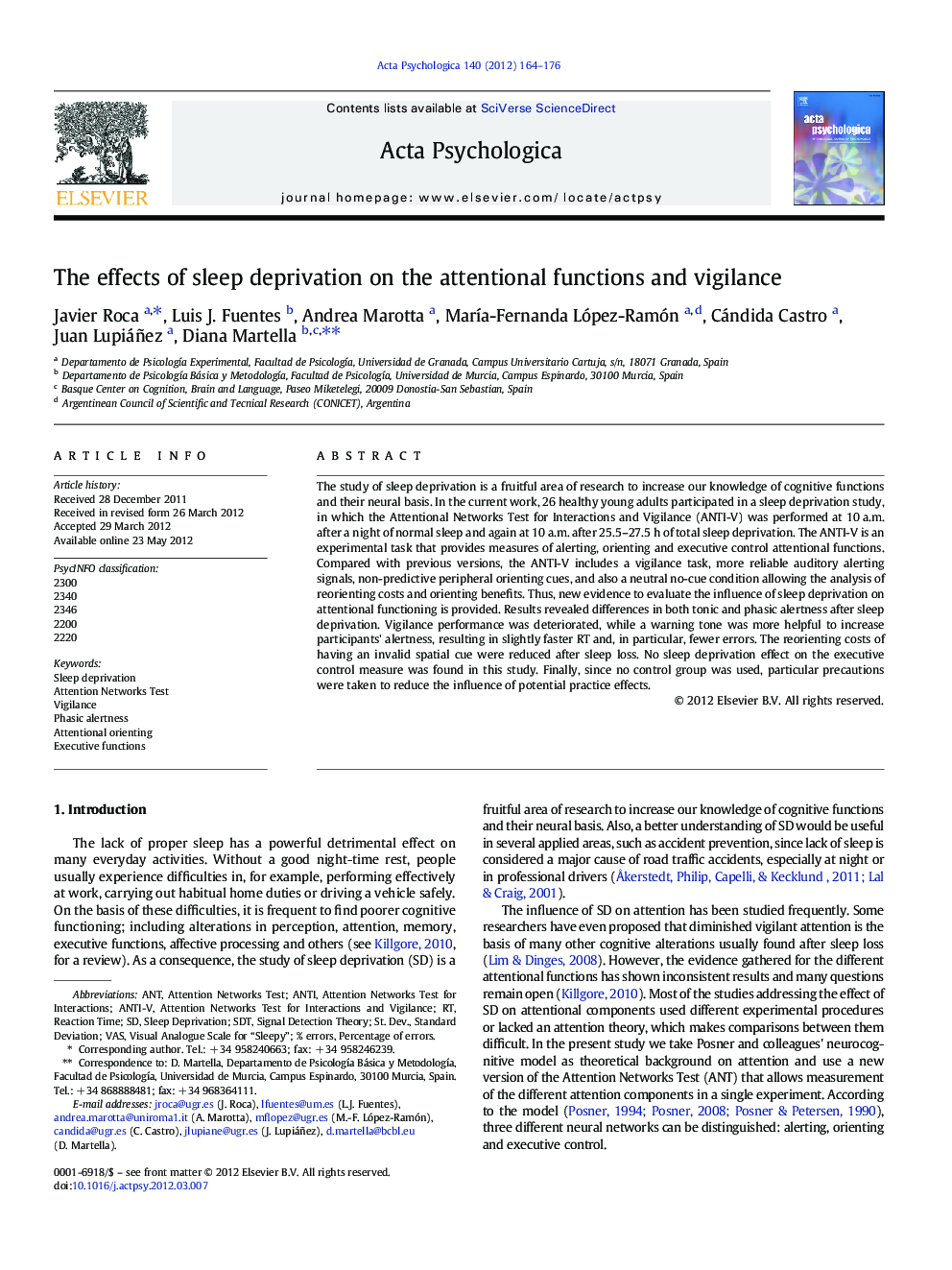| Article ID | Journal | Published Year | Pages | File Type |
|---|---|---|---|---|
| 920013 | Acta Psychologica | 2012 | 13 Pages |
The study of sleep deprivation is a fruitful area of research to increase our knowledge of cognitive functions and their neural basis. In the current work, 26 healthy young adults participated in a sleep deprivation study, in which the Attentional Networks Test for Interactions and Vigilance (ANTI-V) was performed at 10 a.m. after a night of normal sleep and again at 10 a.m. after 25.5–27.5 h of total sleep deprivation. The ANTI-V is an experimental task that provides measures of alerting, orienting and executive control attentional functions. Compared with previous versions, the ANTI-V includes a vigilance task, more reliable auditory alerting signals, non-predictive peripheral orienting cues, and also a neutral no-cue condition allowing the analysis of reorienting costs and orienting benefits. Thus, new evidence to evaluate the influence of sleep deprivation on attentional functioning is provided. Results revealed differences in both tonic and phasic alertness after sleep deprivation. Vigilance performance was deteriorated, while a warning tone was more helpful to increase participants' alertness, resulting in slightly faster RT and, in particular, fewer errors. The reorienting costs of having an invalid spatial cue were reduced after sleep loss. No sleep deprivation effect on the executive control measure was found in this study. Finally, since no control group was used, particular precautions were taken to reduce the influence of potential practice effects.
► The influence of total sleep deprivation on some aspects of attention is analysed. ► Participants completed the ANTI-Vigilance, an updated Attention Networks Test. ► As expected vigilance indices in the ANTI-V deteriorated after sleep deprivation. ► After sleep loss a warning tone was more helpful to increase phasic alertness. ► Reorienting costs of invalid spatial cues were reduced under sleep deprivation.
